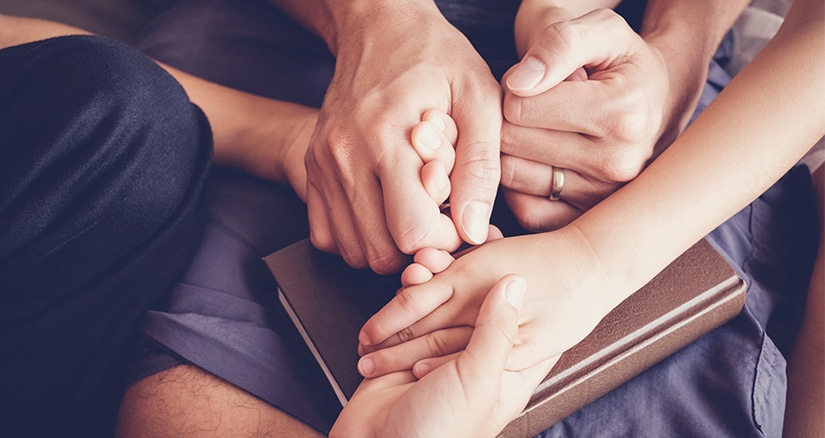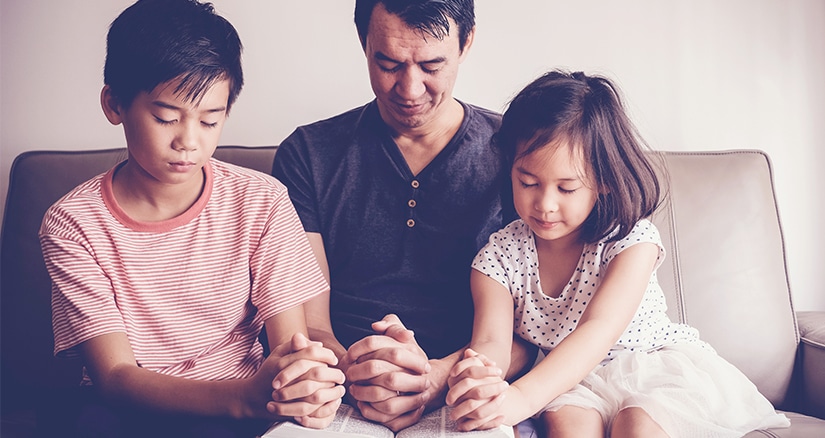DAD DIARIES #3: ESCAPING ESCAPISM

My 17-month-old son has not been quite himself since social restrictions around the CCP Virus began the other week. He is clingier, more moody, and more bored. But why? He isn’t watching the news. Nor is he aware that we are no longer allowed to go to Mass. What he does know is that something is up, and that’s telling.
The pandemic that has changed civic life as we know it comes with consequences much further reaching than death or infection tolls.
“There is no escaping the heartbreaking reality that harsher shut downs of economic activity being pushed by state governments in response to the coronavirus will have dire consequences for mental health, family violence, crime and drug abuse”, begins John Kehoe’s piece Coronavirus shutdown has human costs in the Australian Financial Review.
A study published by The Lancet in February has already shown that the predominant side-effects on quarantine and isolation because of the CCP Virus are negative.
Two weeks ago a teenage girl from the UK committed suicide in quarantine.
Isolation, uncertainty, loss of liberty, and for some, unemployment, are a recipe for mental disaster. I believe that we all know that in the depths of our being. It is written on our hearts.
This can be explained by empty shelves in bottle shops and the ice-cream section of your local supermarket, as well as the free premium subscriptions and up to 5.7% increase in viewers on Porn Hub.
It’s about escapism.
And it’s not as though we’re dealing with something new here either. Most would agree that the levels of suicide, depression, anxiety, drug, alcohol and sex addiction were already too high before the CCP Virus happened; that our culture already had several fundamental defects that were leading people to try anything to escape from a reality that they perceived to be too scary, too painful, or too boring to confront.
And then our pseudo-lockdown happened.
Even the most faithful Catholic is not immune to escapism at a time like this, or any time of distress, really.
Not that I would describe myself as ‘the most faithful Catholic’ – far from it – but I was taken by surprise at how one day last week I found myself feeling as though something in my brain was about to snap.
This is kind of embarrassing to share, but I want to use this column to be candid so that other dads (and men, and human beings in general) realise that it is healthy and necessary to be real, to be vulnerable. Especially today.
As the restrictions imposed by our Federal and State Governments ramped up, I began feeling sorry for myself, which launched me into a subtle downward spiral behind the scenes of my conscious mind while I continued my daily work from home.

By the end of the day, when I felt like I was beginning to go slightly insane, my son and I headed out to the park for a workout (where I workout, and he either crawls all over me or I take advantage of the free dumbbell for more intense squats and Russian twists).
At the park, by the grace of God, my head cleared and I realised how the seeds of escapism were planted in my mind, and I want to share this with you because I’m sure that I’m not the only one.
Entitlement and self-victimisation would be the labels of said seeds. At the coalface, the seeds were thoughts in response to stimuli; the stimuli being intensified social restrictions for an unforeseen time period.
They sounded something like this:
“What have I done to deserve this? Nothing, that’s what! I don’t deserve it at all”
And, “How long is this going to last? What will happen to my family? My job? Our health? We’re all really just powerless to this.”
So, the fact that I had not properly addressed my subtle fall into entitlement and self-victimisation at the start of the day is the issue here.
It takes a lot of work in developing self-awareness to recognise when we are standing on the ledge of reality staring at a magnetically attractive abyss of escapism that promises to remedy our every discomfort.
The evil one is no fool.
Chances are that everyone reading this during these surreal times has some extra time to learn something new, and I would say from experience, that self-knowledge directed toward the love of God and family is the foundational piece of knowledge required to cure every form of escapism.
Just like I needed to incorporate regular workouts into my routine to become physically stronger, we all need to include some self-knowledge exercises into our everyday routine so that we can nip escapism in the bud as often as possible and starting living and loving the reality in which Our Heavenly Father has placed us.
A great thing about being Catholic is that self-knowledge and mental prayer go hand-in-hand. This means we can build our defences against escapism in the presence of the Holy Spirit, who can expand exponentially our efforts to transform our hearts and minds.
I like to begin the day in prayer, and before starting any formal part of the prayer time asking the Holy Spirit for clarity. I ask how He wants me to show up for my wife, my boys, my job, and any other relationships or appointments I know I have coming up that day.
My mental prayer in the mornings allows the Holy Spirit to remind me that now, more than ever, He wants me to stand up as a leader in my domestic church – my home – and set an example in how to model a fulfilled life in which I can still find peace, purpose and freedom, even in lockdown!
Then, at the end of the day my wife and I do a gratitude exercise where we mention at least three things that happened during the day that we’re grateful for.
And finally, just before bed we make an examination of conscience together, asking Jesus to show us where we missed the mark today and how we can do better for Him and for each other tomorrow. In relation to escapism the concept behind these ideas is simple: I’m not going to want to escape from a day on which I focus my energy on giving my best, nor will I want to escape from a life filled with things for which I’m grateful.

